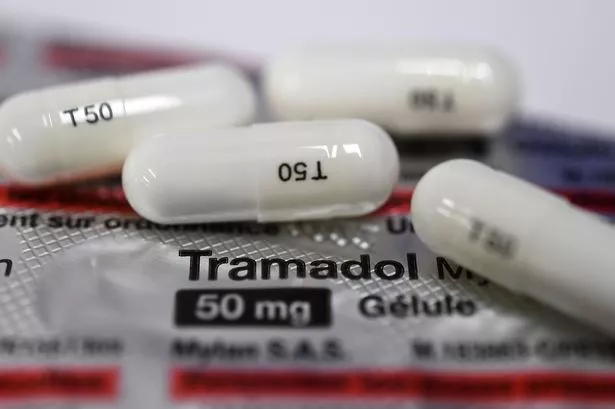Tramadol is used for moderate to severe pain, such as after an operation or a serious injury, but some patients are also on the drug for long-term pain if weaker medicines fail to work
Ian Craig, Neil Shaw Assistant Editor (Money and Lifestyle) and Neil Shaw
11:45, 08 Oct 2025
 A new study has cast doubt on the effectiveness of Tramadol as a painkiller(Image: AFP via Getty Images)
A new study has cast doubt on the effectiveness of Tramadol as a painkiller(Image: AFP via Getty Images)
New research suggests the painkiller tramadol only has a minor effect on chronic pain – and its side effects may outweigh any benefits. The prescription-only drug, known by brand names such as Maxitram, Marol, Zydol, Zamadol, Tramulief, and Tramquel, is a potent painkiller from the opiates family.
It’s typically used for moderate to severe pain, like post-operation or serious injury, but some patients also use the drug for long-term pain when weaker medicines don’t work. But now a new study published in BMJ Evidence Based Medicine suggests the drug – which is particularly popular in the US – has limited impact on chronic pain, and likely increases the risk of serious side-effects, including heart disease.
The research team evaluated 19 published clinical trials involving 6,506 people with chronic pain. Five trials examined the impact of tramadol on neuropathic pain, nine focused on osteoarthritis, four looked at chronic low back pain, and one focused on fibromyalgia.
Most participants were taking the drug in tablet form, and treatment duration varied from two to 16 weeks. Pooled data analysis revealed that, while tramadol did alleviate pain, the effect was minor and below what would be considered clinically effective.
Researchers also discovered a doubling in the risk of harmful effects linked to tramadol when compared with dummy medications, primarily caused by increased rates of conditions including chest pain, heart disease, and congestive heart failure. Some patients also experienced nausea, dizziness, constipation, and drowsiness, reports Plymouth Live.
The study authors concluded: “Approximately 60 million individuals worldwide experience the addictive effects of opioids.
“In 2019, drug use was responsible for approximately 600,000 deaths, with nearly 80 per cent of these fatalities associated with opioids and approximately 25 per cent resulting from opioid overdose.
“Given these trends and the present findings, the use of tramadol and other opioids should be minimised to the greatest extent possible.”
Professor Kamila Hawthorne, chairwoman of the Royal College of GPs, said: “GPs understand how debilitating chronic pain can be and the serious impact it can have on the lives of our patients.
“We want to be able to provide the most appropriate care to help patients manage their pain.
“In line with this study, tramadol has not been found to be helpful for chronic pain, and patients can suffer from its many side-effects.
“As a result, GPs in the UK have been advised to limit, reduce and preferably stop tramadol prescribing for chronic pain and not to start tramadol for new patients with this condition.
“Treating chronic pain can often be challenging given the underlying reason for the pain is often unclear, making it hard to target treatment.
“As with any condition, GPs will consider the various physical, psychological, and social factors potentially impacting on a patient’s health when coming up with a treatment plan, in conversation with them.
“Part of this process will also involve exploring non-pharmaceutical options to supporting patients manage their pain, but access to interventions that could help, such as pain clinics, is often patchy across the country.”
